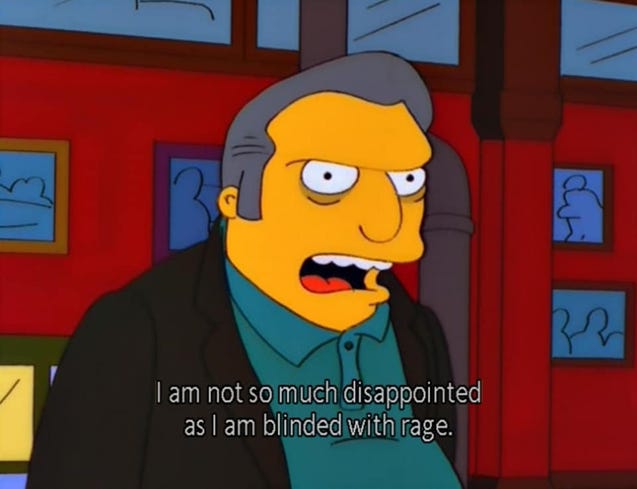the neutral zone
prepare for inevitable change
Sometimes fans of certain TV shows, musical artists, or sports teams will make lame attempts at interjecting those interests into conversations, or—God forbid—into sermons. I can assure you this is not one of those lame attempts! I have a very good reason for the title, “The Neutral Zone,” aside from the fact that it exists in the universe of Star Trek!
For those who do not know, and especially for those who do not care, I will give a very brief explanation. Between the United Federation of Planets and the Romulan Empire there exists a region, established by treaty, which is called the Neutral Zone. Neither of those governments is supposed to send ships of any kind into that area without the consent of the other.
Now, here comes that very good reason to speak of the neutral zone! It’s a concept presented in the book, A Door Set Open, by Peter Steinke. He did a lot of work with congregations, including those who are either in conflicted or transitional situations.
He used the term in reflecting on work done by William Bridges, another consultant. His theory is that “change is an event. Our experience of the change is transition. He cites three movements—endings, the neutral zone, and beginnings—in the transition experience.” (Kindle edition, chapter 7, section 5, paragraph 1)
We might think of “endings” as the chapter or the phase of life that is drawing to a close. “Beginnings” would be the next step or the new reality that is now appearing. It’s the middle one, “the neutral zone”—in which things seem chaotic and unsettled—that can really alarm us, even sending us screaming in the other direction! It can have us confused. Truth be told, some of us are more comfortable with ambiguity than are others.
We all know that caterpillars turn into butterflies. While that critter is still in the cocoon, strange, bewildering things are going on. At some point, it’s neither caterpillar nor butterfly. It’s in a state of metamorphosis in which it’s neither one. That little booger is in what we might call a state of transitional goo. That is its neutral zone.
We can see the people of Nazareth in chapter 4 of St. Luke’s gospel as being in their own neutral zone; they are transitional goo.
As we begin with verses 14 and 15, Luke presents Jesus returning from the wilderness, having endured temptation. We see Jesus, in the power of the Spirit, returning to Galilee. It’s when he comes to his hometown of Nazareth things really get interesting.
Jesus attends “synagogue on the sabbath day, as was his custom,” and he reads the beginning of Isaiah 61 (v. 16).
I have mentioned before the television show, The Chosen, and how much I like it. Season 3, episode 3 is called, “Physician, Heal Thyself.” There is a twelve-minute scene in which this scripture reading is played out. The mood goes from light-hearted to deep affection to tense and very dark.
Jesus commences, “The Spirit of the Lord is upon me, because he has anointed me to bring good news to the poor. He has sent me to proclaim release to the captives and recovery of sight to the blind, to let the oppressed go free, to proclaim the year of the Lord’s favor” (vv. 18-19). Jesus tells the people that “this scripture has been fulfilled in your hearing” (v. 21).
They are astonished by the way he addresses them. They’re asking each other, “This is the son of Joseph, isn’t it?” Dennis Bratcher says, “It seems at first that Jesus had won acceptance at Nazareth. They marvel at the gracious words spoken by Joseph’s son now become a man. But the people have not yet truly responded, at least not on the level necessary to engage the future that Jesus is bringing. Beginning in verse 23…Jesus drives to the heart of the issue, and to the heart of the people.”
It’s not long until Jesus reveals the feelings of ownership and control the people want to use over him. “Hey, he’s from our town; he’s one of us! He should do the stuff here he’s done in other places.”
But when they hear Jesus elaborating, attitudes change pretty quickly. He speaks of beloved prophets, Elijah and Elisha, following the call of God and visiting foreigners. During a severe famine in Israel, Elijah went to the widow in Zarephath in Sidon, a country to the north, part of modern-day Lebanon. And though there were many lepers in Israel, Elisha went to Naaman, who was stricken with leprosy. He was a commander in the Syrian army.
After all, Jesus has just told them, “Truly I tell you, no prophet is accepted in the prophet’s hometown” (v. 24). And it looks like they want to prove him right!
Luke tells us that “all in the synagogue were filled with rage.” In The Message, Eugene Peterson said, “That set everyone in the meeting place seething with anger. They threw him out, banishing him from the village, then took him to a mountain cliff at the edge of the village to throw him to his doom” (vv. 28-29). But it was not to happen that way, that day. He simply walked right through the crowd. We’re not entirely clear how that occurred. Did he slip away, or was it in full view?
I said earlier that the people of Nazareth experience their own neutral zone. Change is going on, but their experience of that change has them emotionally paralyzed. Families, communities, congregations: all of them can be seen as emotional systems. Verses 28 and 29 show us that the people in the synagogue are emotionally stuck—and they want to stick it to Jesus!
The people Jesus is addressing understand all too well what he is saying. He’s letting them know that their claim on him, and at a deeper level, their understanding of themselves as “the” people of God (that is, the only people of God), can no longer be defended. This produces anxiety within them, but instead of handling their anxiety, their anxiety handles them! And as we’ve seen, they want to handle Jesus!
Jesus would like to lead them in the change that is inevitable. But as our friend Peter Steinke commented, “Leading change brings out both reactive forces and responsive ones.” (2.8.8) That first one, reactive forces, is when we become extremely defensive. Sometimes people speak of instinct, the “lower brain,” or the “reptile brain.” We sense danger; anxiety kicks in. Anxiety is an automatic reaction to a threat, whether the threat is real or imagined.
What happens when we’re anxious? Are we relaxed? Or perhaps, does our chest tighten up? Actually, “anxiety” and “angina” come from the same family of words. When we’re anxious, we want instant answers; we see things in terms of yes-no, either-or; we actually become narrow-minded. (Congregational Leadership in Anxious Times, 8-9) When we feel threatened, there’s no time to take a survey! Everything within us is screaming, “There’s no time to think! Just do it!”
That second one that leading change brings, being responsive, is when we are reflective. This is learned behavior. We are free to exercise reason and creativity and imagination. We’re free to explore possibilities. We’re using the “upper brain,” so to speak. And it also has a physical response. Instead of tightness, there tends to be a sense of calm. We remember to breathe!
Both reaction and response are necessary for human life. Without the “knee-jerk reaction,” we wouldn’t pull our hands out of the fire. You know, when any body part is on fire, that’s not the time to assemble a focus group and brainstorm how we might weigh the options!
So for all its benefits, the reptile brain, the lower brain, is not very useful in building community. We need response that’s more elevated. In a similar way, we’re reminded that “once anxiety runs a high fever…one can never rely on insight or reasonableness or even love.” (A Door Set Open, 2.8.8)
Here’s a word of wisdom. Never tell someone they’re acting out of the reptile part of their brain. For some reason, that usually doesn’t go very well! You might get snapped at.
Having said all that, I hope I haven’t given the impression that anxiety is a bad thing. As I just said, anxiety is a normal part of who we are as humans. It’s simply a part of us that can easily overwhelm us and drive our behavior.
I’ve touched on ways in which those in Jesus’ hometown synagogue are spending time in the neutral zone. A good example would be Jesus’ refusal to allow them to “claim” him, but instead, to call them to a wider vision, to orient them in a different direction. In various ways, the winds of change have swept through their lives and community.
That feeling of being in the neutral zone is not unfamiliar to a congregation in an interim period. Feelings of anxiety would be expected. What does the future hold? What will we do next? Or better, who are we, and who is God calling us to be? How is God calling us to emerge from transitional goo?
[“Not all those who wander are lost.” Photo by Thomas Welch on Unsplash]
So it’s true, the neutral zone can be a scary place. But it’s also necessary, though not in the Star Trek sense of keeping enemies apart. It’s necessary because that’s the time and place to re-orient ourselves. We hold on to what is good and true from the past, but not so tightly that we cannot embrace the hopeful and hope filled future into which the Holy Spirit leads us.






